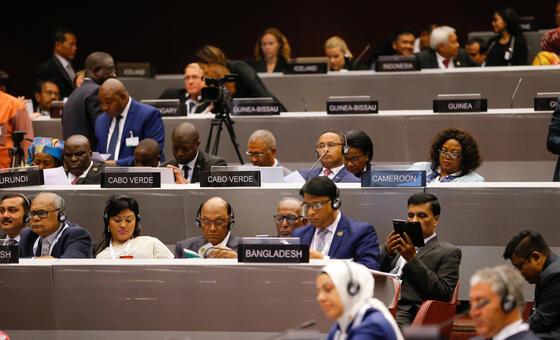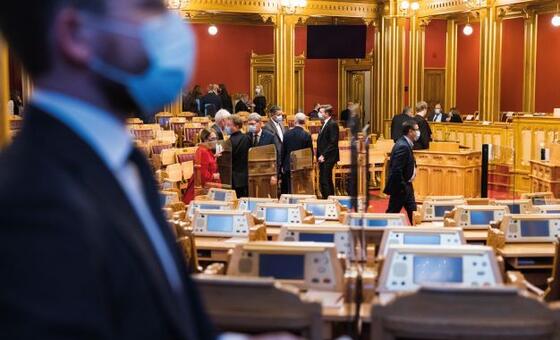- ImpactWe help parliaments to become greener and to implement the Paris agreement.We support democracy by strengthening parliamentsWe work to increase women’s representation in parliament and empower women MPs.We defend the human rights of parliamentarians and help them uphold the rights of all.We help parliaments fight terrorism, cyber warfare and the proliferation of weapons of mass destruction.We encourage youth participation in parliaments and empower young MPs.We support parliaments in implementing the SDGs with a particular focus on health and climate change.
- ParliamentsNearly every country in the world has some form of parliament. Parliamentary systems fall into two categories: bicameral and unicameral. Out of 190 national parliaments in the world, 78 are bicameral (156 chambers) and 112 are unicameral, making a total of 268 chambers of parliament with some 44,000 members of parliament. IPU membership is made up of 180 national parliaments
Find a national parliament
We help strengthen parliaments to make them more representative and effective. - EventsForumNY, United StatesThe Parliamentary Forum at the HLPF is designed to engage parliamentarians in assessing progress toward the Sustainable Development Goals (SDGs) at the global level.
- Knowledge
Discover the IPU's resources
Our library of essential resources for parliamentsGlobal data for and about national parliamentsLatest data and reports about women in parliamentResolutions, declarations and outcomes adopted by IPU MembersRecent innovations in the way parliaments workThe latest climate change legislation from the London School of Economics' databaseIPU on air- Conversations about parliamentary action
The IPU’s latest World e-Parliament Report will be publicly launched at an online event on 25 January 2023. The report shows how parliaments have changed as a result of the COVID-19 pandemic and recommends that parliaments learn lessons for the future from the experience.
Parliaments demonstrate openness by investing time and resources in producing open data. But to be of value, open data has to work for the user. In this article, we look at how an NGO uses parliamentary open data and how parliaments can make their open data more usable.
The CIP’s Open Data Hub presented findings and good practices from the 2022 Open Data Survey during the recent Transforming Parliaments webinar on the state of open data in parliaments.
Thematic
Transforming Parliaments webinar series
Open data hub
ICT governance hub
On 24 October, the Open Data Hub (hosted by the Chamber of Deputies of Brazil) and the IT Governance Hub (hosted by the European Parliament) brought the 2022 Transforming Parliaments webinar series to a close with a session on the state of open data in parliaments. The webinar included a presentation of the 2022 Open Data Survey results, plus an in-depth round-table discussion on open data publishing and usability with experts from the Saeima of Latvia, the UK Parliament and the Chamber of Deputies of Brazil. Across the year, the sessions were regularly attended by 50–60 participants, including senior IT and information management staff from parliaments, and the two hubs have committed to running a new series in 2023. The recordings of the 2022 Transforming Parliaments webinar can be found here.
Host: Brazil
Open data hubICT governance hub
Online peer-assist event
ICT governance hub
The IT Governance Hub supported a two-day online peer-assist event (held on 17–18 November) at the request of the Parliament of South Africa, which needs to produce services and products in 11 official languages and is constantly looking to improve its working practices. Specifically, the CIP was asked to assist with inter-parliamentary benchmarking on innovations and good practices in the following areas: digital document and records management, digital printing services, language support services, Hansard production, and library and information services. The IT Governance Hub invited experts from the European Parliament to share experiences on language services, including translation through speech-to-text, interpretation and reporting services. It also facilitated contributions by experts from the Parliament of Kenya, the Senate of Spain and the House of Commons of Canada.
Building a public engagement community
Public engagement hub
The new Public Engagement Hub is jointly coordinated by the IPU’s CIP and the International Parliament Engagement Network (IPEN). The public engagement community is now growing on the IPU Public Engagement LinkedIn page. Parliaments interested in advancing their public engagement practices are encouraged to participate actively in this community, to take part in webinars and peer exchanges, and to share good-practice examples.
Public engagement webinar series:
Since launching six months ago, the Public Engagement Hub has hosted five webinars, bringing together more than 220 participants from 48 countries and 33 parliaments. The first three sessions covered the public engagement journey, the effectiveness of public engagement tools, and delivering public engagement with small teams. The two most recent webinars are detailed below:
- Promoting inclusion and diversity in parliamentary public engagement (5 October 2022)
This webinar explored how parliaments can promote inclusivity and diversity in their public engagement activity. Andres Lomp (Community Engagement Manager, Parliament of Victoria (Australia)) presented the Inclusion Checklist from the 2022 Global Parliamentary Report, and drew from examples of how his parliament has promoted diversity and inclusivity in its engagement work. He focused on four main elements necessary for inclusive participation:
- A commitment to inclusion
- Building relationships with disadvantaged and underrepresented groups
- A cultural shift that sees the people working across parliament taking deliberate actions to include disadvantaged and underrepresented groups
- Adequate budget to support specific inclusion programmes
The recording of the webinar can be found here.
- Public Engagement: Reaching out to remote communities (9 November 2022)
This webinar focused on creative ways for parliaments to connect with remote communities. Participants heard examples from the following parliaments:
- The National Assembly of Serbia, about field hearings with local communities
- The Parliament of South Africa, about the use of constituency offices as satellite parliamentary offices
- The Parliament of South Australia (Australia), about how they manage to cover considerable distances to engage with remote communities
The presentation by Natalie Young (Community Education Officer, Parliament of South Australia (Australia) can be found here.
Regional
Innovation Showcase webinar series
Southern African hub
On 15 December, the Southern Africa Regional Hub will launch Innovation Showcase, a series of 40-minute webinars held monthly over Zoom. In each webinar, senior IT staff from a parliament in the region will present an innovative project to peers from other institutions. Some will feature guest presenters from other parliaments and CIP hubs. The webinars are open to Southern Africa Regional Hub members and to other parliaments by invitation.
Host: Zambia
Southern African hub
In this edition of the Innovation Tracker, we look at the current state of open data in parliaments, and how parliaments can provide better open data. We have updates from our Public Engagement, Open Data, IT Governance, and Southern Africa regional hub, and an announcement on the launch of the World e-Parliament Report 2022.
Consultancy
Deadline:
The Inter-Parliamentary Union (IPU) is the global organization of parliaments. It was founded in 1889 as the first multilateral political organization in the world, encouraging cooperation and dialogue between all nations. Today, the IPU comprises 178 national Member Parliaments and







